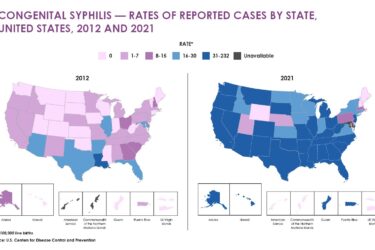
As the legal drama continues to unfold over the Trump administration’s efforts to enforce travel restrictions on people from seven Muslim-majority countries, it is clear that doctors and patients here and overseas are adversely affected.
Caught in last month’s initial chaos were patients seeking medical treatment in the United States, as well physicians practicing or hoping to practice here, ProPublica’s Marshall Allen writes. The impact is expected to be particularly tough for communities already challenged in attracting medical talent, ranging from isolated, rural towns to struggling cities.
“For decades, foreign-born … have played a vital role in shoring up American’s health care system,” Allen wrote in his Feb. 2 piece. “The doctors come to the United States for residency, drawn by cutting edge medical training and American ideals, then stay to fill the country’s growing need for doctors.”
Over the next decade, a shortage of between 62,000 and 95,000 primary care and specialty physicians is expected nationwide, according to Allen’s article. Many of the doctors filling the gap come from India, Pakistan and the Philippines, in addition to Syria and Iran, two countries targeted by Trump’s initial ban.
One such physician is 26-year-old Dr. Suha Abushamma, a Cleveland Clinic internal medicine resident who eventually was able to return to the United States after being caught up in the initial ban and sent to Saudi Arabia. Abushamma carries a passport from Sudan, according to a cleveland.com report.
Those who need care also were affected. The New York Times’ Raphael Minder profiled the case of Sham Aldaher, a young Syrian refugee girl born with a disfigured face and a missing eye who was due to travel to the United States to receive an eye prosthesis when the ban hit.
Physicians groups have urged the Trump administration to protect international doctors as well as severely ill patients. The American Medical Association, Association of American Medical Colleges and the American College of Physicians have issued statements expressing concern, Reuters reported.
It is not clear how the Trump administration’s expected revised executive order on travel and on immigration will differ from the initial one blocked in the courts. As the legal wrangling continues, health reporters should check in with local medical organizations, medical schools, hospital systems and similar stakeholders on how the controversy is affected the health care community.
Further reading
- ProPublica: Will Trump’s Ban Cause Foreign-Born Doctors to Look Elsewhere?
- Cleveland.com: Sudanese Cleveland Clinic resident removed from U.S. returns
- The New York Times: For Syrian Girl in Need of Medical Care, Trump’s Travel Ban Adds to a Nomadic Tragedy
- Reuters: Ban sparks panic among refugees awaiting urgent medical care in U.S.
- Reuters: Medical group urges protection for doctors, patients after U.S. travel ban
- Chicago Tribune: Trump travel ban could hurt medical visits to U.S.







